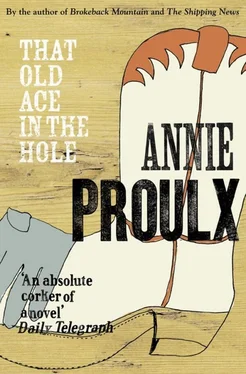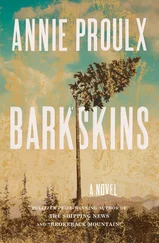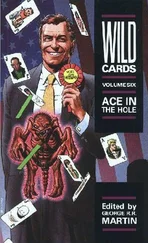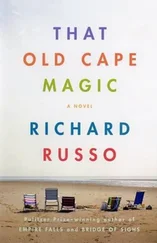“He wasn’t playing! He was hanging her,” she had sobbed.
When he was eight, Bob’s parents had brought him to the thrift shop doorstep very early in the morning, told him to sit there next to a box of dog-eared romance novels.
“Now when Uncle Tam gets up and starts slamming things around inside, you knock on the door. You’re going to stay with him. We’ve got to run now or we’ll miss the plane. Quick hug goodbye,” said his mother. His father, waiting in the sedan, raised his hand briskly and saluted. Years later Bob thought it might have been the break the old man was waiting for.
At first his uncle claimed it wasn’t abandonment. They were in the kitchen at the table, Uncle Tam having his Saturday coffee break.
“I told Viola and Adam to bring you over. The plan was for you to stay with me until they got back from Alaska. After they got their cabin built they were coming back to get you and you were all going to live in Alaska. You staying here was a temporary thing. We just don’t know what happened. Viola called only one time to say they had found some land, but she never said exactly where and there’s no record of it. The pilot that flew them to wherever they went left Alaska and went to Mississippi where he got into dusting crops. By the time we traced him it was useless. He’d crashed in a cotton field and suffered brain damage. Couldn’t even remember his own name. Anything could have happened to your mother and father – grizzly bear, amnesia. Alaska’s a big place. I don’t for one minute think they abandoned you.” He tapped his fingers on the table, impatient with his own words which sounded stupid and inadequate to him. It was not possible for two grown people to disappear as had Adam and Viola.
“Well, what did they do to make a living,” Bob asked, hoping for a clue to his own direction. All he was sure about was that he hadn’t been important enough to take along. He taught himself not to care that he was so uninteresting that his parents dropped him on a doorstep and never bothered to write or call. “I mean, what was my dad, an engineer, or a computer guy or what?”
“Well, your mother painted neckties. You know the one I’ve got of the Titanic sinking? That’s one of hers. I would say that’s my dearest possession. It’ll be yours someday, Bob. As for your dad, that’s a little hard to say. He was always taking tests to see what he should do with his life – aptitude tests. Don’t get me wrong. He was a nice guy, a really nice guy, but a little unfocused. He never could settle on anything. He had about a hundred jobs before they went to Alaska. And there something happened to them that I’m sure they couldn’t help. We don’t know what. I spent a fortune in phone calls. Your uncle Xylo went out there for two months and turned up absolutely nothing except the name of that pilot. Put ads in the papers. Nobody knew anything, not the police, not our family, not a single person in Alaska ever heard of them. So I’d say you had bad luck with your folks disappearing, losing the chance to get raised in Alaska – instead getting brought up by a crazy unrich uncle with a junk shop.” He arched his back and twisted his head, fidgeted with a loose thread on the cuff of his knit shirt. “I suppose the only thing I’d like to impress on you, Bob, is a sense of responsibility. Viola never had it, and for sure Adam didn’t. If you take on a project then, dammit, see it through to the end. Let your word mean something. It just about broke my heart to see the way you’d run to the mailbox every day expecting to find a letter from Alaska. Adam and Viola were not what I’d call responsible.”
“It was lucky in a way,” said Bob. The lucky part was Uncle Tam. He read stories to Bob every night, asked his opinion on the weather, on the doneness of boiled corn, foraged through the junk shop detritus for things that might interest. Bob Dollar couldn’t imagine what his life would have been like in the household of Uncle Xylo whose wife, Siobhan, was an impassioned clog dancer and who ran an astrology business out of their front living room in Pickens, Nebraska. She had a neon sign over the front door with a beckoning hand under the words “Psychic Readings.”
“I guess it wasn’t easy bringing up somebody else’s kid,” he mumbled. The bedtime reading had welded him to Uncle Tarn and to stories. From the first night in the little apartment when Uncle Tam had turned a page and said the words “Part One: The Old Buccaneer,” Bob had become a sucker for stories told. He slid into imaginary worlds, passive, listening, his mouth agape, a hard listener for whatever tale unfolded.
“Ah, you were an easy kid. Except for the library fines. You were always a nice kid, you always pitched in and helped. I never had to worry about phone calls from the cops, drugs, stolen cars, minimart holdups. The only headache you gave me was when you started hanging around with that heavy guy, Orlando the Freak. He was a wrong one. I’m not surprised he ended up in the pen. I’m thankful you’re not there with him.”
“It’s not like he committed armed robbery or something. It was only computer hacking.”
“Yeah? If you think diverting all the operating funds of the Colorado U.S. Forest Service to a Nevada bordello was ‘just computer hacking,’ I have news for you.” He stretched and fiddled with his cuff, looked at his watch. “It’s almost eleven. I’ve got to get back to the shop.”
In the early years Bob often felt he was in fragments, in many small parts that did not join, an internal sack of wood chips. One chip was that old life with his parents, another the years with Uncle Tam and Wayne “Bromo” Redpoll, then just Uncle Tam. Another part was Orlando and Fever and weird movies, then the lightbulb time and Mrs. Giddins asking him to massage her feet and her fury when he drew back, gagging, from the stink of clammy nylon. It was true that Bob had always pitched in and helped with dishes and cooking and house chores, largely because he was so ashamed of Uncle Tam’s withering poverty which somehow seemed less if everything was clean and squared up. He would rearrange the books in the bookcases by size and color and Bromo Redpoll, his uncle’s business partner, would say, “Don’t be such an old lady.”
Uncle Tam doted on Bob Dollar but had little to offer as proof of affection beyond solicitous attention and gifts of relatively choice treasures from the thrift shop, including the recent brown oxfords.
“Bob! These look like your size, ten double E. Try em on. In a bag of stuff from some Cherry Creek fat cat. Probably the maid dropped them off.”
“They’re great. Now all I need is a sports coat.” In fact the shoes looked odd with Bob’s jeans and T-shirt.
“We got no sports coats you’d be caught dead in, but there is a real nice car coat, suede with shearling lining. Like new, and almost your size. Car coats are kind of old-fashioned now, but it could be useful. You never know. The thing is, it’s a kind of – kind of a tan. Come back in the shop and have a look-see.”
The car coat was tight across the shoulders and the sleeves somewhat short, but there was no denying, despite the lemony color of a bad dye lot, that it was a well-made garment. He lived in dread that on the street someday the previous owner would recognize the coat and make scathing remarks. It had happened twice in school, once when he wore an argyle sweater, once with a knitted cap, the name CHARLES spelled out on the cuff. He had tried to ink the letters out with a marker but they showed plainly enough. Eventually a large black beret with cigarette burn holes turned up and he wore it for years, telling himself some Frenchman had visited Denver and abandoned it there.
“Now, Bob,” said Mr. Cluke, slapping his cheeks with a manly heather aftershave lotion, “you cannot go down to Texas wearing brown oxfords. Take my word for it. I’ve spent enough time down there to know a pair of brown oxfords can set you back with those people. Despite oilmen trigged out in suits, and wealthy wheat growers with diamond rings, the figure of respect in Texas is still the cattleman and the cattleman wants to look like a cowboy. It wouldn’t hurt for you to get a pair of dress slacks and some long-sleeved shirts. But for sure you have got to get yourself a decent pair of cowboy boots and wear them. You don’t need to wear the hat or western shirts, but you got to wear the boots.”
Читать дальше












